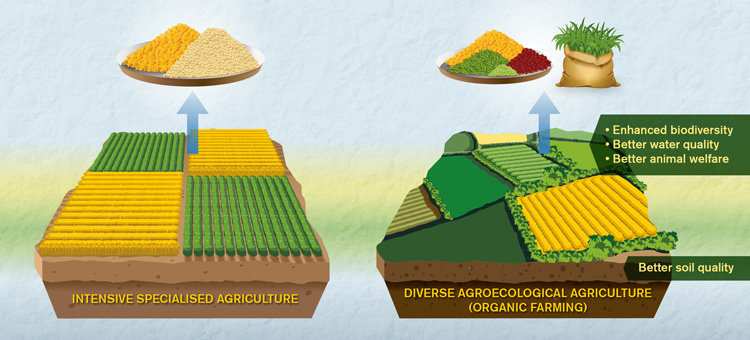Negative press on organic farming stems from simplistic and misleading research, review says

Published: April 1, 2020
Category: The Organic & Non-GMO Report Newsletter, Organic News, The Non-GMO Blog
Recent claims that organic agriculture raises carbon dioxide emissions—because it requires more land then conventional agriculture—have confused buyers looking for environmentally beneficial food purchases.
Two scientists responded with a review in Nature Sustainability, pointing out that studies highlighting such conclusions are over-simplified and fail to address the positive ecological benefits of organic growing—such as increased biodiversity, and avoidance of pesticide inputs. One recent attention-grabbing claim argues that England and Wales going 100% organic would raise emissions up to 56%. That study used life cycle assessments (LCAs) that simply relate environmental impacts to amount of produce grown on a set amount of land. The conclusion fails to address biodiversity decline, land degradation, and pesticides.
Global diversity is in decline—bird and insect populations are being destroyed, linked to intensive farming; organic farmland, though, can increase biodiversity 30% over conventional. Global pesticide use has grown 70% between 1990 and 2015, harming ecosystems and human health—but studies of organic versus conventional do not typically analyze pesticide use.
The authors conclude that current research often overlooks organic farming’s boons and is misleading in simply claiming it’s worse for the environment. Only when additional environmental assessment tools are utilized will the public get a balanced picture.
Source: NewScientist
To view source article, visit:




